Vacations are supposed to be the reward you look forward to after grinding through work, chores and other obligations. Most people save, plan, and daydream about their escape, and the last thing they want is someone trying to hijack it. But sometimes, even family can push things way too far.
Reddit user Motormouth5620 shared a story on r/CharlotteDobreYouTube about booking a quiet adults-only getaway in Cyprus, only for her cousin to demand she switch hotels and babysit her three kids. When the woman refused, her relative labeled her selfish, so she turned to the internet for guidance.
It takes a village to raise a child, but that doesn’t mean that parents can just bully their loved ones into helping them

Image credits: EyeEm (not the actual image)
The line needs to be drawn somewhere


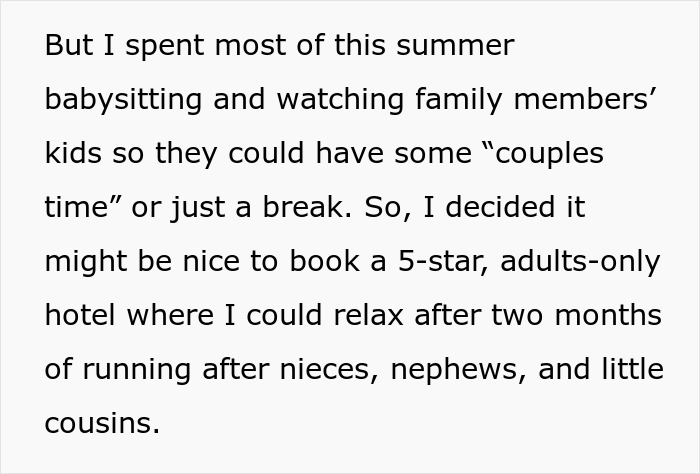

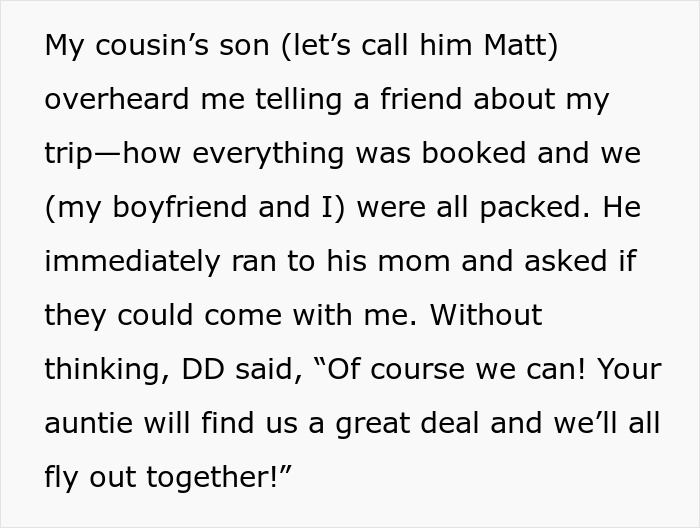
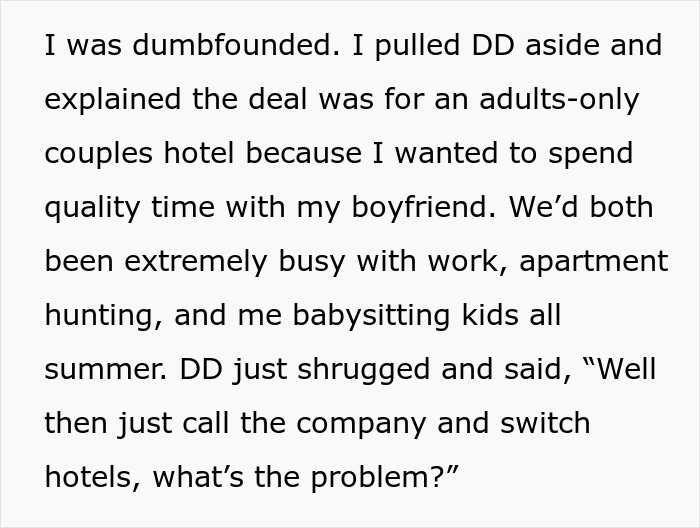

Image credits: dotshock (not the actual image)
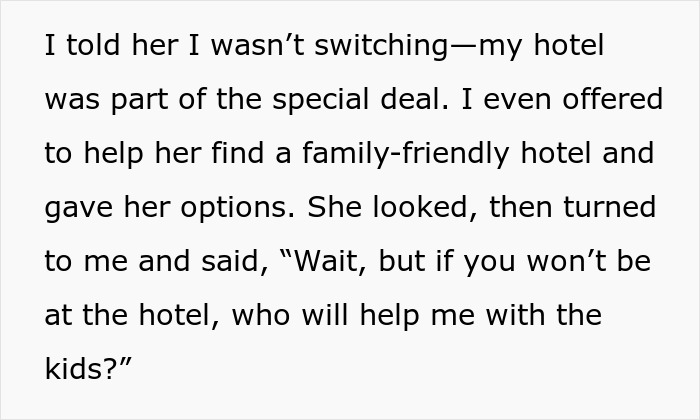
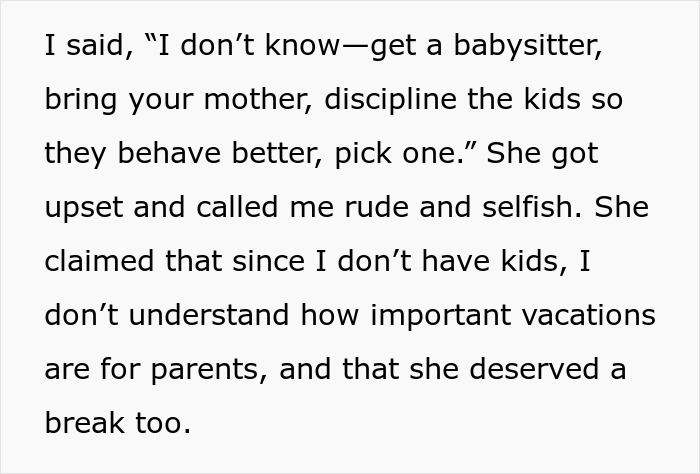

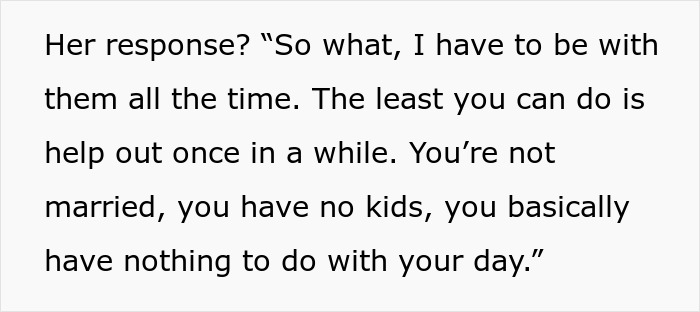

Image credits: Pressmaster (not the actual image)

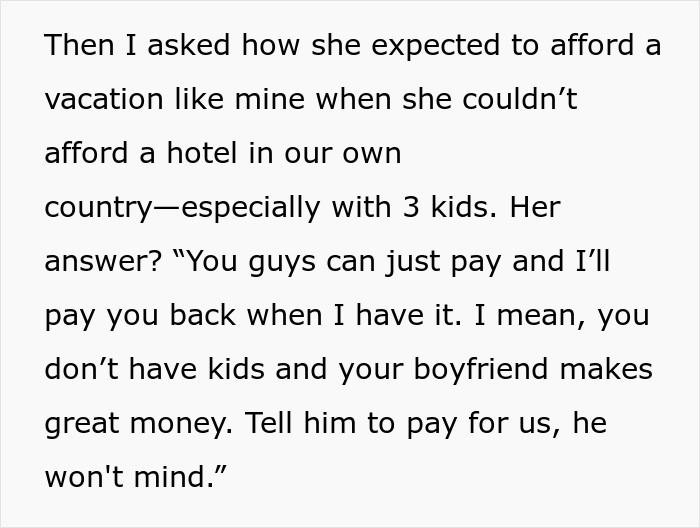
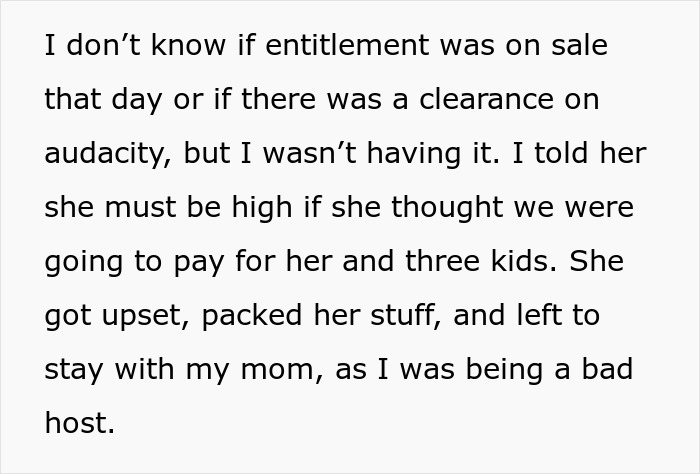

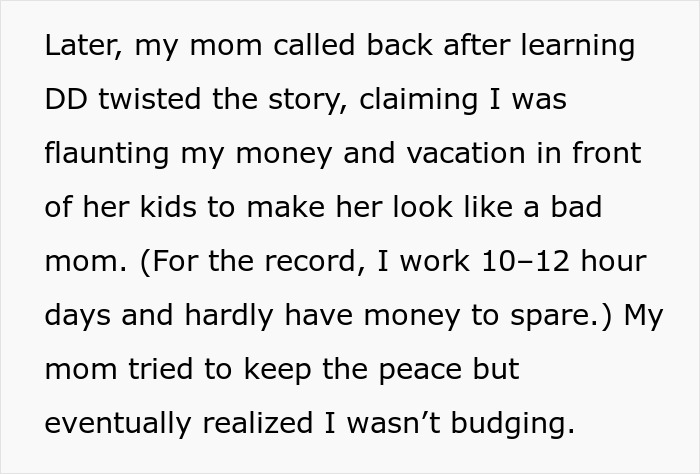


Image credits: Getty Images (not the actual image)



Image credits: Motormouth5620
Many parents rely on their family’s help with childcare
The argument does remind us of the fact that in many parts of the Western world, parents are forced to rely on their loved ones for help. In the United States, for example, regardless of their kids’ ages, most of them don’t have any type of childcare arrangement, including 35% of those with children under age 5 and more than half (54%) with children ages 5 to 11.
When asked in the U.S. Census Bureau’s Household Pulse Survey (HPS), roughly 61% of parents living with at least one child age 17 or younger said they did not have any formal childcare arrangements. The data shows that:
Lower-income households were the most likely not to have any type of child care arrangement: 67% with annual household incomes under $50,000 reported not having child care compared to 52% of households earning over $200,000 a year.
But experts say setting boundaries is self-care, not selfishness
However, everyone has a right to refuse. Healthy boundaries are good for both the person setting them and whoever’s on the receiving end.
“It really helps develop the kinds of relationships where you can enjoy people’s presence more and be present in the moment with them,” says California-based licensed marriage and family therapist Angela Sitka.
“A lot of us have these events where we see family—and we either don’t want to or can’t cut them off—so at least we can enjoy it a bit more if we feel in control of the situation.”
According to the therapist, boundaries don’t have to be “fair” or “accommodating,” they’re meant to acknowledge your own needs, and in some cases—especially if someone is emotionally abusive or mocking or stonewalling you—the boundary needs to be firm.
Some pushback is normal while the new dynamics are put into place. “We have to be prepared that it’s likely going to be an ongoing process. It might take several conversations and different strategies,” Sitka says.
After her story went viral, the woman joined the discussion in the comments, where the consensus was that she had every right to refuse


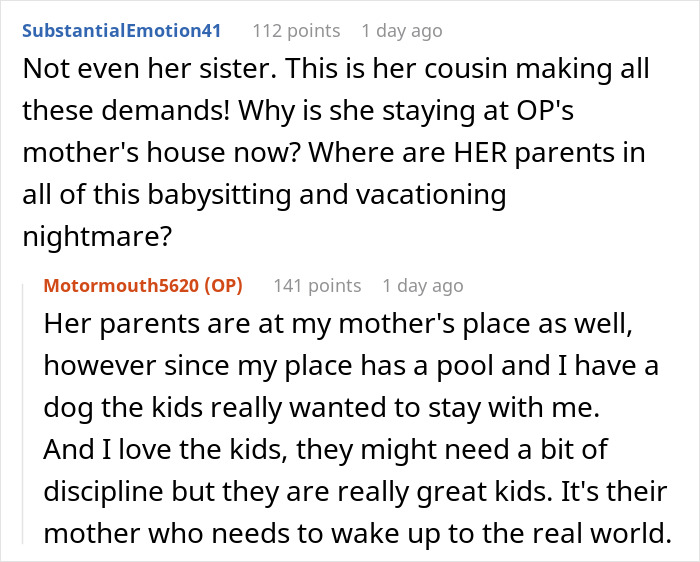




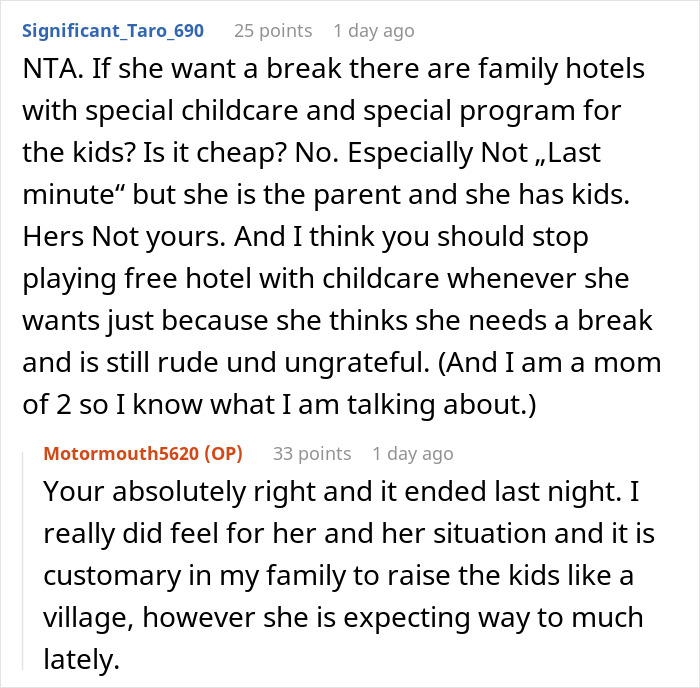





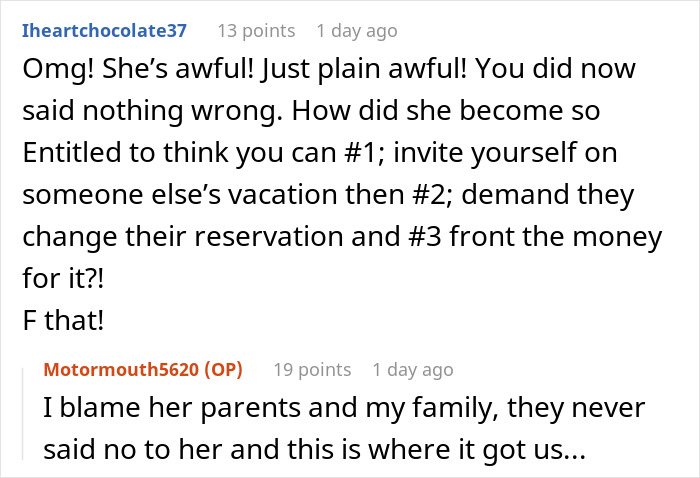




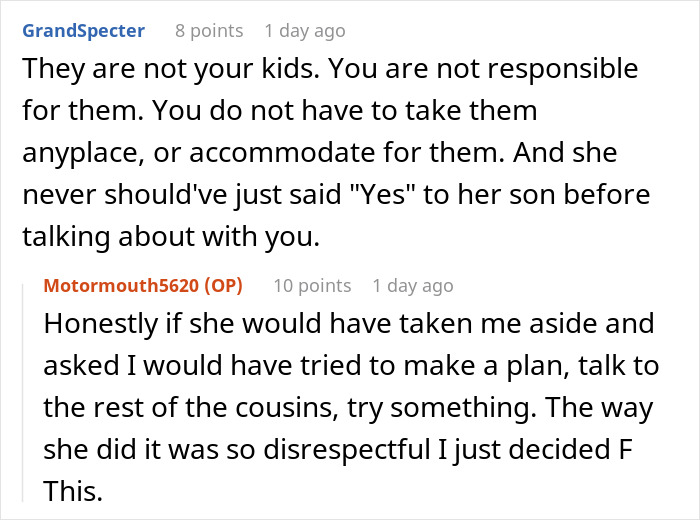













 Follow Us
Follow Us




